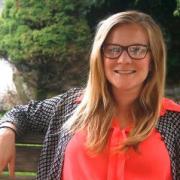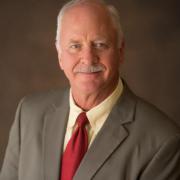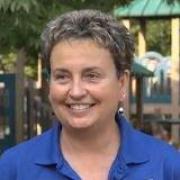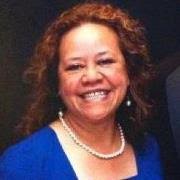The National Shared Use Task Force has created the Shared Use Ambassadorship program to acknowledge practitioners, researchers, and policymakers who are making positive strides in the field of shared use to increase physical activity and healthy food access in communities.
We are truly inspired by the work of these Ambassadors. They are at the forefront of some of the most creative and effective shared use strategies, from engaging hospitals and exploring the role of shared use in hospital settings, to amplifying the youth voice to effectively advocate for shared use in their schools, to tackling the challenges of shared use implementation in rural Appalachia. The momentum that these Ambassadors have been able to gather is galvanizing the movement -- from increasing physical activity access in the Tongan American community in Salt Lake City, Utah to addressing the needs of the community through the community school model in Ohio, there is no shortage of inspiration from these Ambassadors. We hope you are able to learn from their stories and be encouraged in your own work.
Meet the Shared Use Ambassadors
 |
Jamal Jones Jamal Jones is a 24-year-old youth organizer who works with The Baltimore Algebra Project in Baltimore, MD. Jamal serves as the Co-Executive Director for Funders Collaborative on Youth Organizing fellow for the Baltimore Algebra Project. In these roles Jamal helps to facilitate the organizing projects that the organization works on throughout the course of the year. These campaigns include revision to school policing policies, the national Student Bill of Rights, and a campaign for community control of schools, where his role as a Healthy communities II is carried out in the form of working for establishing a community-driven shared use agreement for Baltimore City Public School System. In his eight years with the organization, Jamal has worked on campaigns such as stopping the construction of a 100 million dollar youth jail, obtaining day passes for travel for students during the school week, and the introduction of salad bars to six high schools. Jamal organizes citywide in Baltimore for community control of resources, Black institution building, and for the overall uplifting of Black people and communities of color. Jamal is currently a senior at Morgan state University earning his B.A. as a philosophy major and psychology minor. Jamal is also the father of two daughters, Jayla (age five) and Kaylee (age three) who attend Baltimore City Public School System.
|
 |
Katie Stone Katie Stone, MPH, is director of the Creating Healthy Communities program (CHC) at Columbus Public Health (CPH). CHC is grant-funded to work in high-needs neighborhoods within the city of Columbus, focusing on preventing and reducing chronic disease through physical activity, healthy eating, and tobacco-free initiatives. Katie has been working with CHC to create and implement policy, systems, and environmental changes (PSE) within the community to create a sustainable culture of health. Katie’s firsthand shared use experience includes working with Mount Carmel’s Healthy Living Center to create a use agreement for the hospital setting between the Healthy Living Center and community groups, agencies, and/or programs. Katie also provided technical assistance with the development of the new Columbus City Schools wellness policy, which enables schools to utilize shared use to promote before and after school collaborations to promote wellness. Katie also manages two full-time staff members as well as a part-time intern who focus their efforts on increasing healthy food access, opportunities for physical activity, and increasing smoke-free living options. Katie also co-chairs the Chronic Disease Prevention Advisory Board (CDPAB), which is a multi-agency collaboration working through PSE , as well as education and resource distribution to reduce the rates of Chronic Disease within Columbus. Katie has first-hand experience working with the community to promote messages of health and to create a sustainable change to help make the healthy choice the easy choice for the community members and organizations that she serves.
|
 |
George Block George's experience with shared use started with the Northside (ISD) Aquatics Center. The Northside Aquatics Center opened in 1978, specifically planned and designed to be a community aquatics center. Since 1978, the Aquatics Center has held elementary PE swimming classes, high school and club swimming and diving teams, extensive community fitness and learn-to-swim programming. Typically, multiple programs will operate in the center simultaneously. In the mid-90s, as a part of SA2000 planning, the primary strategy developed was to turn elementary schools in to community centers during non-school hours. Unfortunately, that concept died from being too far ahead of its time, but the sub-goal of having a park within walking distance of 90 percent of the homes in San Antonio was adopted by San Antonio Sports in to our 20-year Facility Plan. There was no money and no land available, but there was already an elementary school within walking distance of 90 percent of the homes in San Antonio. Harris County was starting a program at that time called SPARK (School PARK), where CDBG funds were used to upgrade neighborhood school playgrounds. San Antonio had no access to that type of CDBG funding, but SA Sports licensed SPARK locally and promoted it (unsuccessfully) to city councils. In 2010, Councilman Reed Williams called back and said, “I was wrong. I get it now” and he dedicated some surplus bond funding to “prime the pump” with the first 3 SPARK projects. |
 |
Hitomi Kubo Through Spread the Health Appalachia (STHA), a CDC Community Transformation Grant awarded to Microclinic International and implemented in partnership with the Bell County, Knox County and Cumberland Valley District Health Departments between 2012-2014, the rural communities of southeastern Kentucky engaged in a health transformation to tackle the high rates of chronic disease in the region. Among the seven integrated STHA initiatives, shared use agreements (SUAs) were a key component of the overall effort to increase access to and engagement in physical activity in a region with very high rates of obesity, diabetes and heart disease. STHA received additional technical assistance from the Voices for Healthy Kids: Active Places initiative, funded by the American Heart Association and the Robert Wood Johnson Foundation. By the end of STHA, two of the four target counties – Bell County and Knox County – had signed SUAs, opening four facilities to the public for recreation and physical activity, reaching nearly 50,000 people. |
 |
Teresa Wendell It all started when Ohio courts dissolved a three-decades-long order to use busing to alleviate school segregation. Dayton Public Schools seized the opportunity to rebuild the public system by returning to neighborhood schools. To demonstrate the full potential of schools as centers of their communities, a coalition of Dayton public and private partners conceptualized and supported five Dayton elementary schools as pilot “centers” of neighborhood redevelopment. These Neighborhood School Centers (NSCs) demonstrate what is required for schools to serve as community centers. As a Site Coordinator, Teresa works to supports the school principal by managing the contributions of community partners who bring resources to the school site. The goals of the Neighborhood School Centers are to improve student achievement, be the first choice school of the neighborhood, and serve as a hub of activities for the families in the neighborhood. |
 |
Fahina Tavake-Pasi In 2013, with the help of a grant from the Asian and Pacific Islander Health Forum, NTAS formed a health coalition, identified locations to target, and worked with local leaders to brainstorm solutions. Their work led them to the concept of shared use. As a strategy that makes use of existing facilities, shared use seemed like a cost-effective way to create opportunities for physical activity. The Salt Lake City-based National Tongan American Society (NTAS) decided to take action, and surveyed the community to get to the root of the problem. The surveys revealed that Tongans of every age were less physically active than the average Utahan of the same age. Respondents also reported two key reasons they were not physically active: They did not have exercise equipment, and they preferred to exercise with other people, but there were few group activity options. “Most members of the Tongan community can’t afford a gym membership, and many of their neighborhoods have no sidewalks,” said Fahina. “We needed an affordable solution.” Armed with this new data and information, NTAS made it a priority to enable and encourage physical activity by making private and public playgrounds, gyms, and facilities available for community use. Find out more about Fahina and her work here. |
